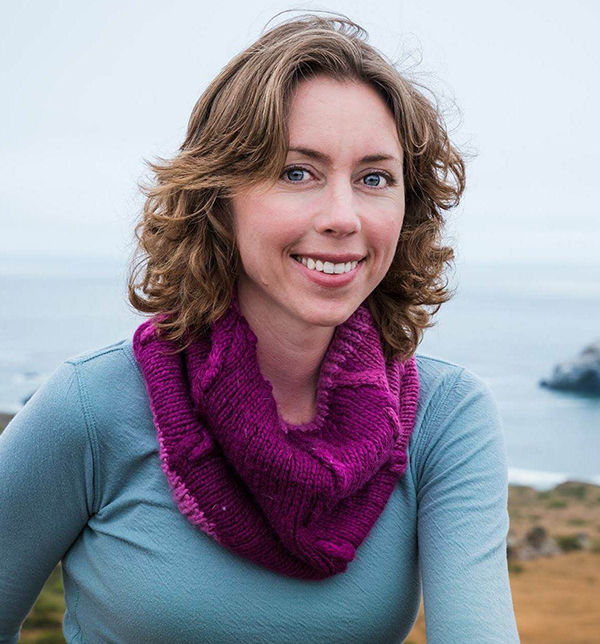From the Capitol insurrection to the recent spike in COVID-19, these are precarious times, but on a local level at least, the wheels of government continue to turn. FifthDistrict Supervisor Lynda Hopkins was sworn into her second term of office on Jan. 5, and took over as the new chair of the board of supervisors. The ceremony took place virtually and was performed by her two daughters, 8 and 5, with her 1-year-old son in attendance.
Hopkins said that though there are times when seven days feels like seven years, “I also feel hopeful. I also feel that oftentimes in moments of crisis, that’s when our community really pulls together and unites around a common vision and takes care of each other.”
First and foremost on her agenda for 2021 is lifting the county out of the pandemic and fast, she said. “And we must be all systems go on vaccine implementation.” Building a better-functioning government, equity and climate solutions are the three other main missions Hopkins named for the year.
“I think that one of the most challenging things in local government is that we can’t seem to get out of disaster mode. We are constantly poised to make good progress when we are sidelined by a disaster, whether it is a fire or a flood or a pandemic,” she said.
Hopkins said she’s immersed in the undertaking to vaccinate the county as quickly as possible with the community stakeholders and the Department of Health Services, planning mass vaccination and pop-up sites throughout the county for easy access.
Despite the county’s requests for support, the state hasn’t offered enough funding or infrastructure support for personnel and reservation systems, somewhat abdicating the role compared to other states with more centralized efforts, according to the new chair.
Be that as it may, the support for local nonprofits and small businesses is heartening in the face of a calamity that calls for people to stand so far apart, Hopkins said.
She also designated aid to the county’s small businesses and vulnerable populations as another objective “because even though an end is in sight, we see the light at the end of the tunnel, this is also a really challenging time and a lot of folks are just barely hanging on,” she said.
Hopkins said the county government is also following state and federal stimulus package developments to find “what any gaps in service or coverage might be and then trying to plug those gaps with local funds in partnership with local nonprofit organizations.” She said the board will meet Jan. 26 to consider a local stimulus package.
Hopkins pursues a vision of local governance that is more accessible to the community, publishing agendas early enough so people can get up to speed and a calendar clearly signaling when major policy conversations will take place.
“And then one of my big pushes is going to be having two touchpoints for every major policy decision,” she said, where the board would launch an open discussion and dispatch staff to canvass the community for feedback and present their policy proposals to the board months at a later date.
“So it’s about kind of having a policy development process as opposed to sudden decisions that take the community by surprise,” Hopkins said. She also wants to convene with city councils to discuss countywide issues, like disaster preparedness, she said.
Equity and communication for Latinx and Indigenous communities is not a newfound weakness for the county in times of disaster. As of Jan. 14, the Latinx community is disproportionately the most infected, comprising 65% of the county’s COVID-19 cases but only 27% of the county’s population.
Hopkins praised the Latinx Health Work Group’s work under the Department of Health Services in working with community leaders to improve conditions. According to the county website, the taskforce chose the nonprofit On the Move to run an outreach and education initiative through its program La Plaza: Nuestra Cultura Cura.
The county directed significant resources from the general fund and The CARES Act to support the initiative called the COVID-19 Urgent Response Care & Aid Project, also known as the CURA Project, supporting Latinx and Indigenous communities with emergency financial assistance and wraparound services to address concerns that households could not afford to miss work or get tested if they were exposed, sick or positive.
Hopkins also believes the county must improve language access, meaning Spanish language access at all board meetings and other public meetings. The county has some translation services, but Hopkins said she especially wants to ensure Spanish speakers can access discussions of broad community relevance.
“But at the end of the day, every single item on the agenda is a broad community interest and deserves to be able to be accessed by people who speak Spanish as their first language and are more comfortable hearing it in Spanish,” she said.
The struggle to build effective communication strategies is at play during the pandemic as it was notoriously during the 2017 Tubbs Fire, when Hopkins said the county’s wireless emergency alert communication was inadequate.
“October 2017 was certainly my low point on the board of supervisors in terms of systemic county failures because the county completely failed to communicate in Spanish,” she said of the last four years.
“But we’ve come a long way since then, so I would say we definitely learned a lot of lessons in 2017 and we have been more prepared for subsequent disasters. But each disaster is a little bit different, so you learn a little bit more with every single crisis that you go through,” she said.
Speaking of wildfire, Hopkins said decreasing risk of fiery devastation through adaptation and mitigation is part of her county climate agenda along with strengthening carbon sequestration. The county has a lot of forests and rural land to work with, including the Agricultural Preservation and Open Space District, she said.
“I think we have a lot of unexplored opportunities on the climate front,” she said. “I see that district as playing a critical role in solutions.”
As for the ongoing housing crisis, the chair said the board has marked the calendar to approve auxiliary dwelling unit (ADU) designs through Permit Sonoma.
“In unincorporated Sonoma County, there’s not a lot of opportunity for large-scale development, but there is a lot of opportunity for small granny units to be developed on properties, so this would facilitate the development of more small granny units around unincorporated Sonoma County,” she said.
One welcome change over the pandemic has been increased public engagement at online meetings because parents and workers can multitask while they prepare to make public comments, according to Hopkins.
“In some ways, it actually has opened the door to more participatory government, so I hope we don’t lose that when we go back to in-person,” she said, adding the county could still broadcast its town halls on Zoom or Facebook Live or other platforms when the county returns to some normalcy.
Hopkins named her family as her north star in some ways as she leads the county through challenging times. “I’ve always called my husband my Jiminy Cricket because there is no better soul or heart on this planet. I mean, he just is really a person of deep integrity and really puts his values into practice every day of his life,” she said.
Ultimately, she said leaving future generations a better world is what guides her, looking to her children and other kids without the same privileges her family enjoys, like a stable income and college education.
“At the end of the day, a lot of local government is about relationships,” Hopkins said, and that she knows Sonoma County much better now than when she first stepped into its leadership as 5th District supervisor.
“And so, I think it’s really those relationships that I developed along the way that are the most important to me. I mean, we have a lot of amazing human beings in Sonoma County who are mostly growing in the same direction,” she said. “Growing towards a better community, a more equitable community, a community with more affordable housing, with less homelessness, with a more protected and even more beautiful environment.”
The new chair said she counts herself lucky to collaborate with the community that holds so many shared values.









